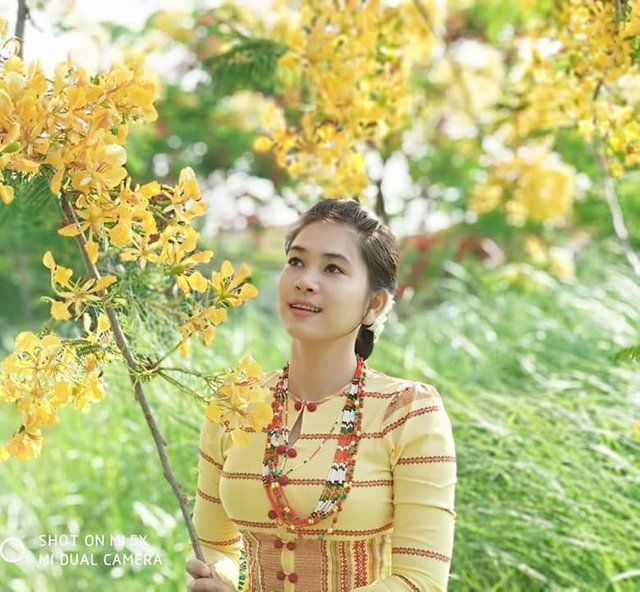Confucius Human Nature

Confucius was an extremely influential figure in Chinese culture. He was born around 551 B.C.E. and lived a long and full life before his death around 479. He is thought to have been the first man in China to devote his life to teaching and the first to encourage education for all people. As with many great figures from antiquity, little about his life is known for certain and the few facts that we do have available have become intermingled with myth. One fact is certain his work and example became a cornerstone of Chinese thought. His texts were taught in the Chinese schools and were the basis of their civil service examinations from 1313 until 1905.
Confucius has sometimes been dubbed the Socrates of the east and there are many similarities in their teachings. Both emphasized the importance of education and the role which it plays in the building of one’s character. This building of character can be viewed as the growth of virtue upon the matrix of human nature.
Humans are born with more or less the same needs and faculties. Obviously there are exceptions at either extreme and of the spectrum, but in general we are all very similar at birth. Based upon our actions, the feedback that we receive in response, and revisions in our behavior in reaction to the feedback, we each begin to embark upon a divergent pathway. This action-feedback-revision process shapes our experiences, creating our unique individual lives. Confucius points out that what we have in common by nature is our potential for growth and our individual degrees of growth are what differentiate us.
By nature Confucius was the same as any other man; that the only thing that set him apart was his great love for education. Although he only addressed nature in the one instance, by examining more of the Analects we can delve deeper into the potentialities that nature offers us. A good man does not act for the sake of praise, but because his experience his education has shown him the proper path to take.
By careful examination of the Old ways through the recorded thoughts and experiences of our predecessors, insight can be gained that can be implemented into our present circumstances. In his pursuit of knowledge Confucius learned much about the past and was adept at using this information to illustrate his points when teaching. His teachings were in no way based on faith, but entirely upon evidence. In cases where he saw no evidence he refrained from speaking on the topic or drawing any conclusions. He also pointed out here that knowledge that is possessed but not used is useless. Lessons learned must be implemented in order to actualize their true value.
Confucius explains the way that all experience can be education. By hearing and seeing much, much will be learned. The caution invoked here is the contemplation upon these experiences and their correct application. The reward here is the experience of a good life rather than a material reward. Confucius comes very close to addressing human nature. Man has the capacity for both Goodness and wickedness, but perhaps not the capacity for perfection of the form of Goodness. He points out that this is not due to an inherent lack of strength and seems to point instead to more of a lack of dedication. Were one truly dedicated to the pursuit of Good there would be no chance to indulge in wickedness.
The opportunity for education is omnipresent. In the company of good people we learn their characteristics and are able to implement them in our own lives. In the company of bad people we learn their characteristics and are able to recognize and eradicate these characteristics in ourselves. A gentleman does not brag nor make promises that he cannot keep. The gentleman strives to keep his actions in congruence with his words, and will not expend words that he would be unable to follow up with action.
Confucius seems to be addressing human nature though it would be more nearly correct to see it as addressing a human tendency rather than a nature. Like water, humans have a tendency to seek the path of least resistance rather than remaining dedicated to the path of the higher ground. Moral integrity attracts through resonance. Other people of high moral integrity will be attracted in an effort to be in good company, and others will be attracted by this inner strength. Humans are very much vessels, carrying their experiences and knowledge through space and time.
Education provides us more with a proper reasoning of why to do things rather than teaching us what exactly must be done. Mere mimicry of an educated person does not prepare one to make their own decisions. Even a man who had been known for his truthfulness succumbed at least this once to misrepresentation.
One of the great byproducts and benefits of education is humility. The more one learns, the more aware they become of the vast quantity of knowledge available and the absurdity of one ever learning all that there is to know. Common man often thinks that he knows all there is to know on a given subject and adopts a pretentious manner. The pursuit of knowledge of self is the highest form of education but also the most difficult. What is learned in one branch of knowledge can be applied to all other branches of knowledge but the hardest task is the application of this knowledge upon our own characters. It is far more difficult to examine one’s own character from the inside than it is to examine another’s from the outside.
A man’s strength and powers can only be quantified through their exercise. One cannot know of their capabilities without experimentation and verification. Though everyone would like to live a Good life, very few persevere through the work involved. The path of the Good life takes lifelong dedication. The path of the Good life is a life-long process, and as such can only be judged in retrospect.
Ritual can be seen in such everyday things as politeness and manners. It can also be seen when we develop a standardized method to help us through complicated procedures, such as when we always set up a truth table in the same manner. Rituals are the grease in the gears of life, they keep things running smoothly. One who is knowledgeable and adept at these rituals is twice blessed and well prepared for anything that they might encounter on the road of life.
Confucius advocates a life of moderation, but too often people live instead at the extreme ends of the spectrum, with lives of excess or aestheticism. we are all very much similar. We all are born with the same set of needs and no matter how much we might diverge as we go about living our lives we continue to operate based upon these needs. In the process of fulfilling these needs, we develop 'wants' which to a great extent are more or less similar as well. Through examination of our own feelings and desires we can learn much about the feelings and desires of others as well. By taking an empathetic position and helping others we are given an opportunity to learn and to better prepare us for the realization of our own satisfactions.
The process of education teaches us just how similar we really are, even across vast expanses in time. Philosophy, history, literature, all show us that ancient man had the same needs, wishes, and questions as modern man. It is no easy task to remain open to the moment at all times. The day-to-day drag of the weight of responsibilities, trials and tribulations, indeed anything in life can be a distraction from this goal, just as it was in Confucius' day.
Authors get paid when people like you upvote their post.
If you enjoyed what you read here, create your account today and start earning FREE STEEM!
If you enjoyed what you read here, create your account today and start earning FREE STEEM!
This user is on the @buildawhale blacklist for one or more of the following reasons:
Downvoting a post can decrease pending rewards and make it less visible. Common reasons:
Submit